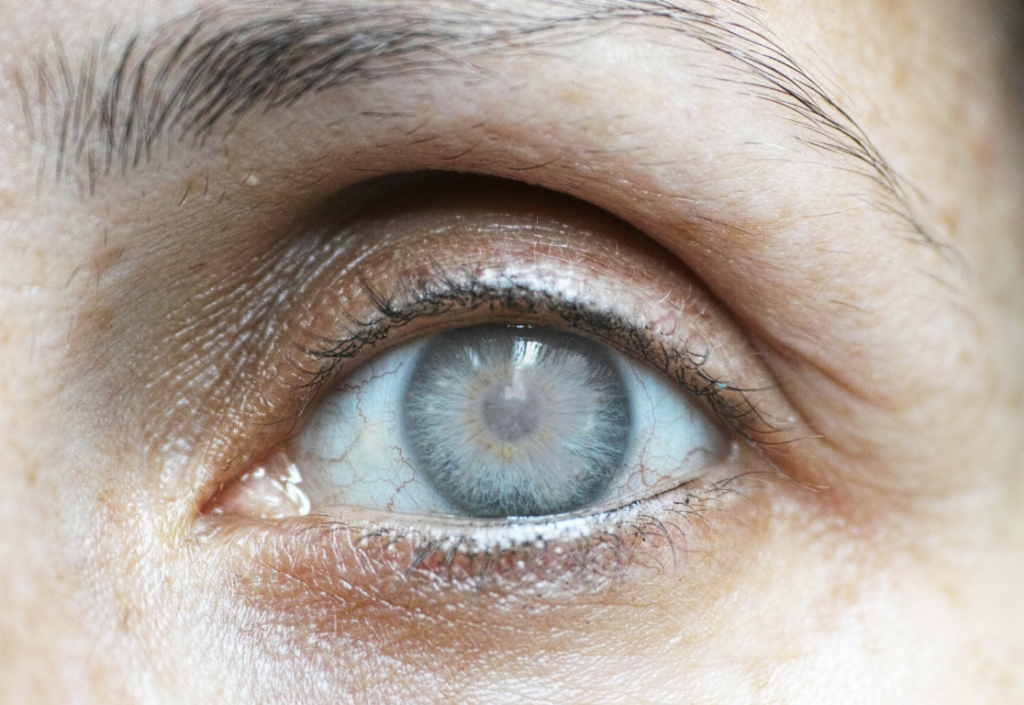No products in the cart.
Health Conditions
Common Eye Conditions In Seniors
As we progress through our golden years, our eyes frequently bear testimony to the passage of time. However, as we become older, we are more likely to develop a variety of eye conditions that can impair our eyesight and general health. In this article, we’ll look at the causes, symptoms, and potential therapies for common eye conditions that affect seniors. Understanding age-related macular degeneration, cataracts, and glaucoma is critical for protecting sight and maintaining a vibrant quality of life as we age gracefully. Join us as we delve into the complex realm of ocular health, offering insights and tactics for navigating the journey with clarity and confidence.

Common Age-Related Eye Conditions
As people age, they are more likely to acquire eye conditions that can cause vision loss or blindness. The following are some of the most frequent age-related eye conditions:
Cataracts
Cataracts are cloudy lenses in the eye that can cause visual loss. They are quite frequent in older persons and can be caused by a number of causes, including age, genetics, and UV radiation exposure. Symptoms of cataracts include hazy vision, light sensitivity, and difficulty seeing at night. Cataracts are frequently treated with surgery to remove the clouded lens and replace it with an artificial one.
Glaucoma
Glaucoma is a set of eye conditions that can damage the optic nerve and cause visual loss. It is frequently caused by a buildup of pressure inside the eye and is more common in older people. Glaucoma symptoms include hazy vision, halos surrounding lights, and loss of peripheral vision. Glaucoma treatment options include medication, surgery, or both.
Age-Related Macular Degeneration (AMD)
AMD is a degenerative eye condition that affects the macula, which is the area of the retina responsible for central vision. It is the major cause of visual loss among seniors. There are two forms of AMD: moist and dry. Dry AMD is more frequent and progresses slowly, but wet AMD is more severe and advances rapidly. Symptoms of AMD include blurry or distorted vision, as well as a loss of color vision. Medication, laser therapy, and surgery are all options for treating AMD.
Diabetic Retinopathy
Diabetic retinopathy is a diabetes complication that can cause damage to the retina’s blood vessels. It is more common in persons who have uncontrolled blood sugar levels and can result in vision loss or blindness. Symptoms of diabetic retinopathy include blurred vision, floaters, and difficulties seeing at night. Diabetic retinopathy treatment options include medication, laser therapy, and surgery.
Finally, seniors should be aware of frequent age-related eye conditions that may impair their eyesight. Regular eye exams and early treatment can help you avoid vision loss and blindness.

Diagnosis and Treatment Options
Regular Eye Exams
Regular eye exams are essential for elders to retain clear eyesight. Eye exams can detect early symptoms of cataracts, glaucoma, and age-related macular degeneration. Seniors with diabetes should get more frequent eye exams because they are more likely to develop diabetic retinopathy. Eye exams can also reveal other health problems, such as excessive blood pressure and cholesterol. It is recommended that elders have a full eye checkup every one to two years, or more frequently if their eye doctor suggests.
Surgical Interventions
Seniors who suffer from certain eye conditions, such as cataracts or retinal detachment, may require surgical intervention. Cataract surgery consists of removing the clouded lens and replacing it with an artificial lens. Retinal detachment surgery reattaches the retina to the back of the eye. These surgeries are frequently conducted as outpatient procedures and have a high success rate.
Prescription Medications
These may be required for seniors with certain eye conditions, such as glaucoma or conjunctivitis. Prescription eye drops can help glaucoma sufferers lower their eye pressure, while antibacterial eye drops can cure conjunctivitis. When using prescription eye drops, it is critical to follow your doctor’s instructions.
Vision Aids and Rehabilitation
Seniors who have poor vision may benefit from vision aids and therapy. Reading glasses or magnifying glasses might aid elderly who have difficulties reading small print. Devices like talking watches and large-print books can also be useful. Seniors with vision loss can benefit from rehabilitation programs that help them adjust to their new visual abilities and learn new skills to keep them independent.
Overall, early detection and treatment of eye conditions are critical for seniors to keep their vision. Seniors should get regular eye exams, use sunglasses to protect their eyes from the sun, and seek medical assistance if they notice any pain or changes in their vision.

Lifestyle and Preventative Measures
Protective Eyewear
Wearing protective eyewear is vital for elders to avoid eye injury. Seniors should maintain a pair of approved safety glasses at home. As we age, impairments in eyesight and balance increase our chances of falling at home. Seniors should ensure that their carpets and shower/bath/tub mats are slip-resistant. Avoid small rugs, which might provide a trip hazard. Sunglasses can also help shield your eyes from damaging UV rays.
Nutrition and Exercise
A well-balanced diet and regular exercise can help keep your eyes healthy. Seniors should eat meals high in vitamins A, C, E, and omega-3 fatty acids. These nutrients can help prevent age-related vision issues and maintain eye health. Exercise can help enhance blood flow to the eyes, lowering the risk of high blood pressure.
Managing Chronic Conditions
Seniors who have chronic diseases like diabetes or high blood pressure should carefully manage them. High blood sugar and high blood pressure can damage blood vessels in the eyes, causing visual issues. Seniors should also address dry eyes, which can be caused by aging or certain drugs. Using a humidifier at home can help ease dry eye.
It is critical to address family history, ethnicity, age, and other factors with an ophthalmologist. Regular eye exams can help discover problems early, and seniors should get a comprehensive eye checkup with an ophthalmologist every year or two after the age of 65. Regular eye exams allow the ophthalmologist to identify problems early. The sooner an issue is identified, the more likely it will be treated.
In summary, elders should take preventive actions to keep their eyes healthy. Wearing protective eyewear, eating a well-balanced diet, exercising frequently, controlling chronic illnesses, and getting regular eye exams can all help prevent age-related vision issues.
Conclusion
Finally, the aging process frequently presents a slew of obstacles, including those affecting our vision. However, equipped with knowledge and awareness of common eye conditions in seniors, we can manage and reduce their influence on our life. There are several ways to protect our ocular health, ranging from routine eye exams to lifestyle changes and treatment alternatives. By prioritizing preventive care and seeking timely intervention when necessary, we can continue to appreciate the beauty of our surroundings and live each day with clarity and vitality. Remember that our eyes are more than simply windows to the soul; they are priceless assets that deserve our undivided attention and care.
Trusted Health, Wellness, and Medical advice for your well-being



Recommended Posts
Unveiling the Top Dietary Restrictions
Dietary restrictions are becoming more frequent in today’s diversified gastronomic scene as people try to
Fight Infections with Natural Herbs
In an era when antibiotic resistance is on the rise and the value of natural
You Won’t Believe Which Honey is the Healthiest
In the wide and diverse world of honey, knowing which variety is healthiest for health
When To Consider Doing Hypnotherapy
Do you struggle with anxiety, phobias, or bad behaviors that you can’t seem to break?
Understanding Diabetes as a Chronic Health Condition
Welcome to our article on understanding diabetes as a chronic health condition. With an estimated
Are Clay Masks Better Than Peel Off Face Masks
When it comes to face masks, there are so many possibilities that it can be